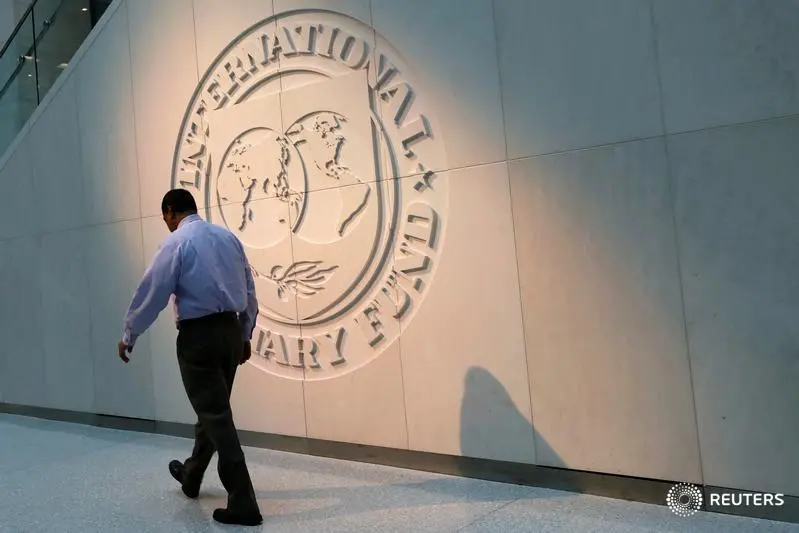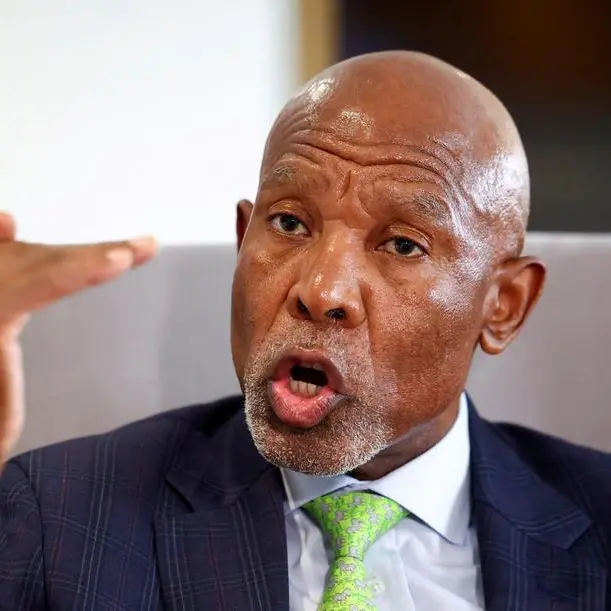PHOTO
As Egypt pushes for a new IMF loan it has a choice between letting its overvalued currency weaken gradually and the kind of sharp depreciation it enacted in a similar currency crisis six years ago, with both options carrying risks, economists say.
A severe shortage of foreign currency in Egypt over the last six months has sent banks and importers scrambling to pay for the letters of credit needed to get cargo released from customs.
Factories and retailers complain that production and sales have been hurt due to undelivered inputs, while supply shortages have contributed to annual inflation running at more than 13%.
Many economists agree the Egyptian pound will have to be devalued, but they are split on how quickly this could happen.
Exchange rate policy is a key question facing new central bank Governor Hassan Abdalla, appointed last month after the sudden resignation of his predecessor, Tarek Amer.
The central bank has been allowing the pound to weaken against the dollar by less than 0.01 pounds ($0.0005) per day on average since Abdalla was appointed on Aug. 18.
Such an approach could cushion the impact of a weakening currency on prices. A quicker liberalisation would likely release pent up demand for dollars after the government tightened restrictions on imports in February.
"A gradual pace of depreciation may be necessary to contain costly negative consequences from a weaker exchange rate to inflation, public debt and unanchored foreign exchange," said Carla Slim of Standard Chartered Bank.
But slower depreciation could also extend the foreign exchange shortage, stymie growth and sentiment and possibly fall short of the demands of the IMF, other economists say.
"The advantage of a one-off is that there should, in principle, be no expectations that more is to come, and this helps anchor inflation expectations and limits the incentive to hoard foreign exchange," said Farouk Soussa of Goldman Sachs.
INCHING CLOSER TO IMF ACCORD
New governor Abdalla has been holding a series of meetings with ministers to help chart out monetary and fiscal policy.
Discussions have "focused on the need to provide the necessary financing for the management of strategic and basic commodities, as well as the provision of production requirements for factories," a cabinet statement said on Sunday. The group also discussed Egypt's ongoing talks with the IMF.
Finance Minister Mohamed Maait, announcing measures to clear backed-up cargo, said on Tuesday that a rapid release of goods from the ports would help reduce costs to consumers.
The IMF announced in March that Egypt had requested a new financial support programme, but in July said the country needed to make "decisive progress" on fiscal and structural reform.
The Fund also said greater exchange rate variability could have helped avoid a buildup of external imbalances and facilitate adjustment to economic shocks.
Egypt has suffered such shocks repeatedly, including at the onset of the COVID-19 pandemic and after Russia's invasion of Ukraine.
During a currency crisis in 2016, Egypt allowed the pound to float freely, only to see it lose half its value within weeks. Inflation rocketed to over 30% for much of the following year, and the central bank later intervened to keep the pound strong.
In a measure of current pressure on the pound, retail dealers on the black market were buying dollars this week at 21.00 pounds to the dollar while corporate buyers were being offered around 22.40, compared to an official rate of around 19.20.
In a research note, Bank of America said it expected a devaluation followed by a flexible foreign exchange regime tied to an IMF program.
"Judging from the 2016 precedent, we think this would most likely occur over the coming months, after the approval of an IMF Staff-Level Agreement and as a prior action for IMF Executive Board approval," it said. ($1 = 19.1700 Egyptian pounds)
(Reporting by Patrick Werr Editing by Aidan Lewis, William Maclean)





















